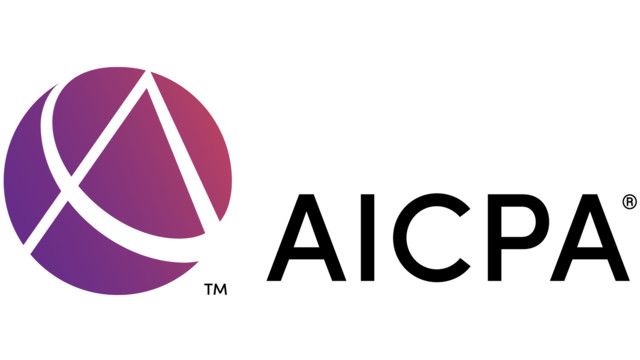The American Institute of CPAs (AICPA) has recognized 16 innovative accounting educators with the 2021 Effective Learning Strategies Awards.
The AICPA awards, co-sponsored by Grant Thornton and the Federation of Schools of Accountancy (FSA), are given each year to college and university educators who develop unique and effective teaching tools for introductory, upper division, and graduate accounting courses. Recipients are determined by the AICPA Academic Executive Committee’s ELS Educator Awards Selection Committee based on submissions made during the annual call for submissions period.
“In a year wrought with disruption and unique challenges, this year’s winners have created new paths for developing students, improving learning outcomes and deepening their engagement in the classroom,” said Jan Williams, CPA, Ph.D., the Effective Learning Strategies Educator Awards program chair and professor at the University of Baltimore. “These educators are redefining how accounting is taught and having an enormous influence on future generations of CPAs.”
Recipients of the 2021 Effective Learning Strategies Awards, as well as honorable mentions are:
Bea Sanders/AICPA 2021 Teaching Innovation Award
· Winner: “The Great Accounting Escape”, Jennifer Cainas and Juliana M. Kralik, University of South Florida. Developed a simulated Escape Room experience for managerial accounting students to reinforce relevant costing and short-term decision concepts.
· Honorable Mention: “KAT Manufacturing: Interactive Dashboard Projects for Integrating Data Analytics into Introductory Accounting”, Wendy Tietz, Kent State University; Tracie Miller Nobles, Austin Community College; Jennifer Cainas, University of South Florida. Created eight interactive dashboards projects that are designed to be used in the introductory courses.
· Honorable Mention: “Gamification of Introductory Accounting through Business Simulation”, Saurav Kumar Dutta,Curtin University; Wahseem Soobratty, Curtin University; Mahendra R. Gujarathi, Bentley University. A business simulation to be used to teach introductory accounting concepts to undergraduate students majoring in business.
George Krull/Grant Thornton 2021 Teaching Innovation Award
· Winner: “Divvying Up Data: A Data Visualization Case,” Michael Ozlanski, Susquehanna University; Suzanne Seymoure, North Central College. This case asks students to assume the role of a newly hired analyst for Divvy, the Chicago bike-share program. In this role, they use Tableau to learn data analysis and data visualization techniques to interact with a large, real-world dataset with over three million rows.
· Honorable Mention: “How much money am I making? BeYoutiful Bath Bombs Inventory Costing Project”, Tara M. Lambert, Whitworth University. In this three-part experiential learning project, students work with a small local business called BeYoutiful Bath Bombs and use standard cost accounting concepts from Managerial and Cost Accounting to 1) calculate cost and gross margin of four top selling inventory items, 2) describe to the business owner how they arrived at their calculations, and 3) present their results to the business owner and deliver an updatable spreadsheet to reflect real time changes in raw material costs or selling price.
Mark Chain/FSA 2021 Teaching Innovation Award
· Winner: “The Implementation of Inline XBRL (iXBRL) and the IFRS-based XBRL Taxonomy in the EU and U.S. – The Case of SAP SE,” Mark Holtzblatt, Cleveland State University; Kristine Brands, United States Air Force Academy. Student learning objectives require investigating these EU and U.S. XBRL developments. Students also examine the efforts of SAP SE, the German technology multinational corporation, which since 2005 files IFRS financials, and since 2009, produces IFRS-based XBRL statements.
· Honorable Mention: “Wealthy Watches Inc.: The Substantive Testing of Accounts Receivable in the Evolving Audit Environment,” Lindsay M. Andiola and Devon Jefferson, Virginia Commonwealth University; Denise Hanes Downey, Villanova University; Christine E. Earley, Providence College. This case exposes students to the testing of accounts receivable while introducing them to audit-related technologies (such as Interactive Data Extraction and Analysis (IDEA) software and robotic process automation (RPA)) used in practice.
“These educators are finding innovative and creative solutions to inspire students and cultivate their knowledge, skills, and abilities,” said Jan Taylor-Morris, CPA, CGMA, Ph.D., Academic in Residence, AICPA & CIMA. “I applaud them for sharing their award-worthy works with the academic community, ensuring that many more students are impacted by them. It is exciting to see how accounting education is adapting and evolving to meet the future demands of the profession.”
The materials from these submissions will be posted to the Academic Resource Database, a resource for faculty to support updates to their curriculum to reflect the evolving accounting profession.
Thanks for reading CPA Practice Advisor!
Subscribe Already registered? Log In
Need more information? Read the FAQs




